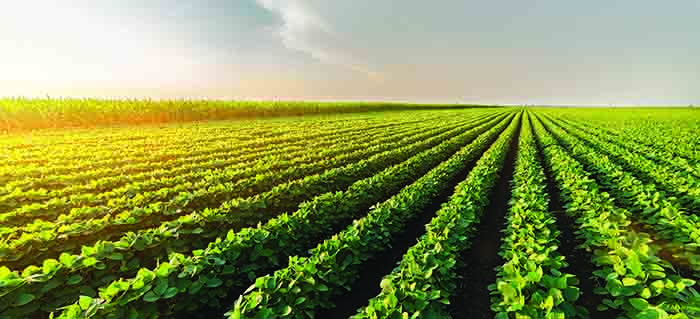The UK livestock industry has made good progress in sourcing soya from responsible sources, and is gearing up to further increase volumes, according to the UK Roundtable on Sustainable Soya’s Annual Progress Report.
As of October 2019, 27% of soya consumed in the UK was covered by a deforestation and conversion free soya standard. This is a significant increase from the baseline report in 2018, which showed only 15% of soya was covered by the standard.
The roundtable’s 2019 progress report sets out the group’s current understanding of the UK’s soya footprint in terms of volumes, source and sustainability credentials, as well as progress made by the members, which include the NPA.
The UK annually imports approximately 3.2 million tonnes of soya bean equivalents in the form of soya beans, meal and oil. Most comes from South America, either directly (68%) or through the Netherlands, and from the USA. At least 0.6 million tonnes of additional soya are imported indirectly ‘embedded’ in products. Approximately 90% of the EU’s soya is used to feed livestock, typically in the form of soya meal.
With a growing focus on the environmental impact of sourcing South American soya for pig feed, the fact that more than a quarter of imports are now covered by the standard is welcome progress. But the roundtable is forecasting that this figure will increase in line with the new or strengthened commitments made over the past year by eight major retailers and other UK RT members.
“When these commitments are fully implemented the combined tonnage could represent an estimated third of the UK’s soya consumption alone,” the report says.
“There remain challenges, and in the coming year Efeca, experts in sustainable farming and forestry, as facilitator of the Roundtable will strive to engage with sectors who are not currently well represented in the Roundtable such as food service as well as meat and dairy brands.”
Efeca is planning to work with industry associations to develop sector specific plans to help achieve ‘a mass market transition to deforestation and conversion free soya’.
NPA policy services officer Lizzie Wilson, who sits on the roundtable, said: “This is very welcome progress and shows that livestock producers and the supply chain are taking the issue seriously.
“Of course, there is more to be done and, with the spotlight on soya sourcing becoming ever more intense, I have no doubt the pig industry will continue ensure the protein used to feed pigs is sourced responsibly.”




